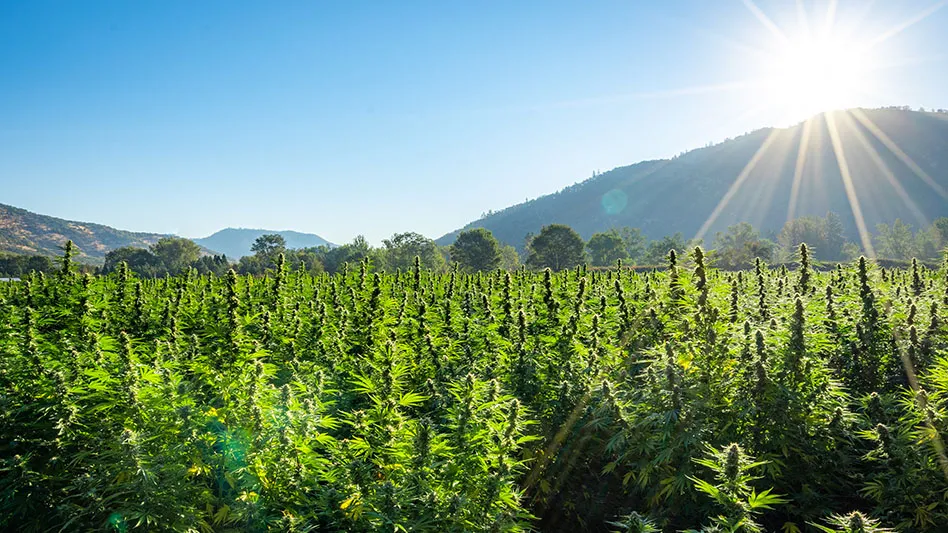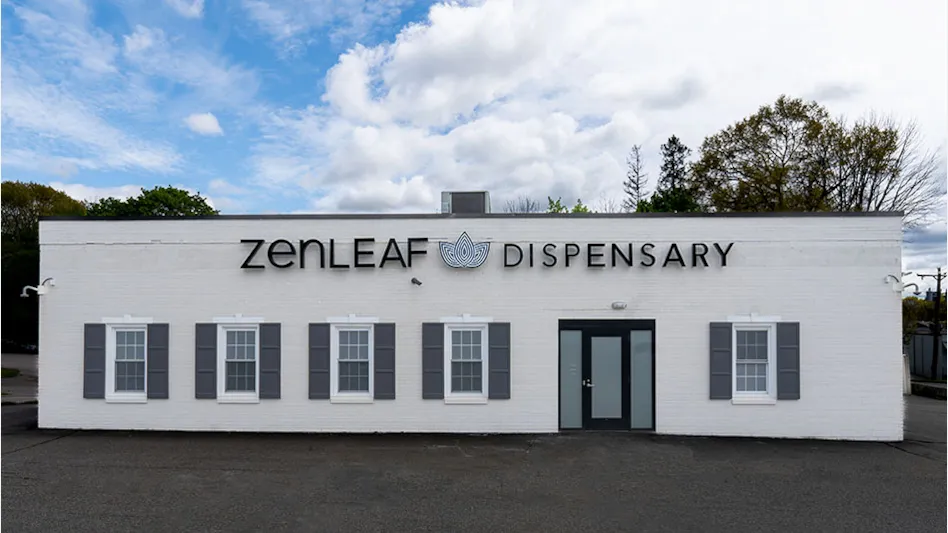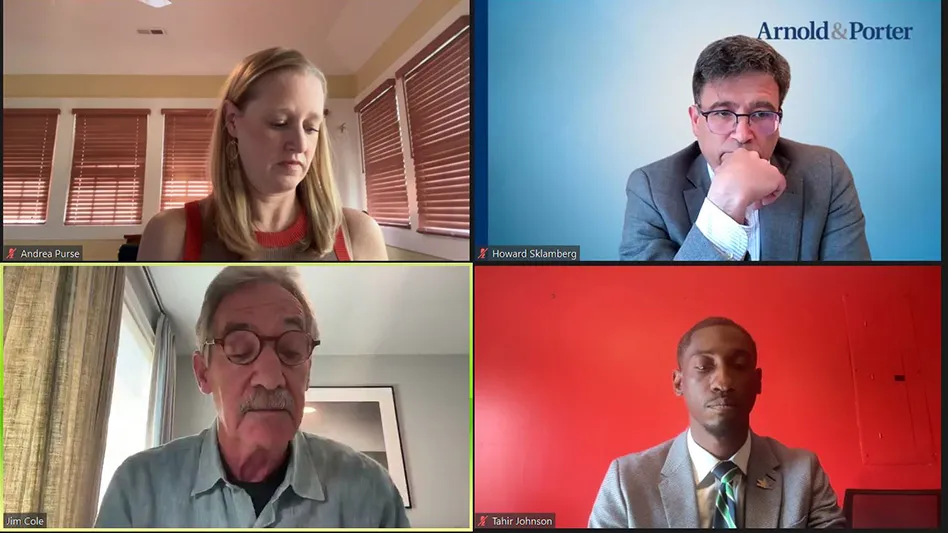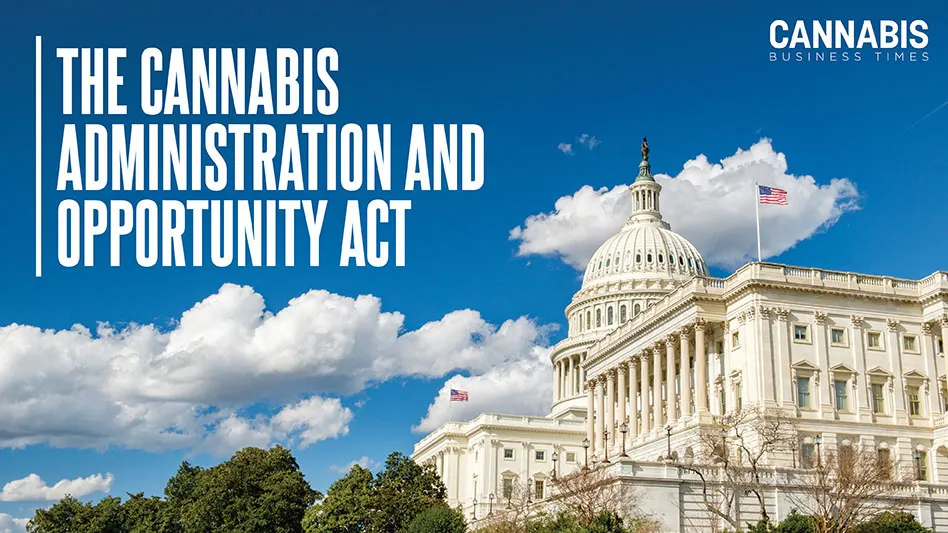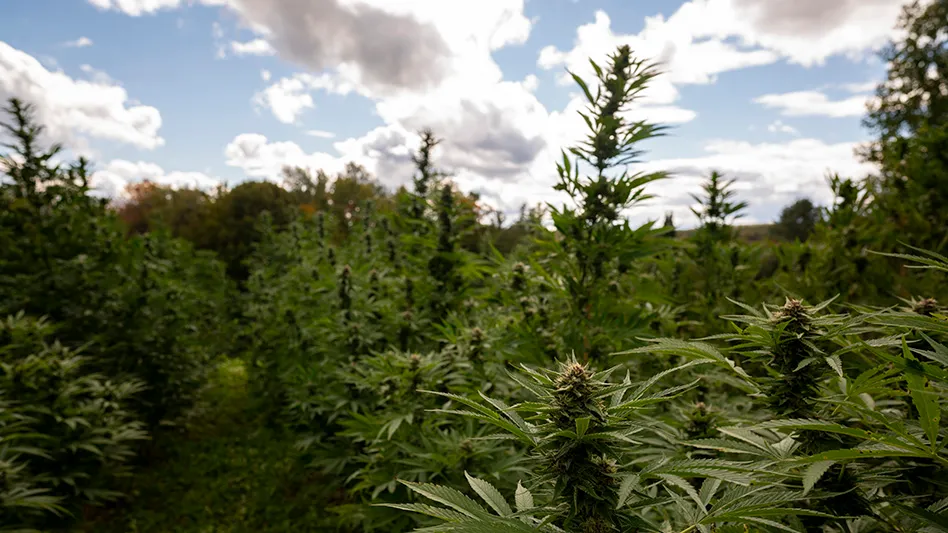
Photo courtesy of Rebel Grown
Sun+Earth, a nonprofit, third-party certification for regenerative organic cannabis that launched nearly five years ago in California, has certified its first East Coast Farm: Vermont-based Rebel Grown.
Nestled in the mountains of Vermont’s Northeast Kingdom in Craftsbury, Vt., Rebel Grown is a half-acre cannabis farm on a 200-acre permaculture sanctuary. The company has produced hemp since 2018 and received its adult-use cannabis cultivation license in 2022.
Cannabis certified by Sun+Earth must be sun-grown and cultivated on farms that build living soil and strengthen local habitats. Sun+Earth will not certify crops grown with chemical fertilizers or pesticides; instead, the nonprofit’s standards encourage farmers to plant cannabis alongside food crops, use cover crops, compost and reduce soil tillage.
Rebel Grown’s founder and CEO, Dan Pomerantz, began growing cannabis in Vermont when he was just 17 years old. Ten years later, he relocated to Humboldt County, Calif., in the heart of the Emerald Triangle, to learn how to perfect his craft before moving back to Vermont to secure his adult-use license.
RELATED: How Rebel Grown’s Dan Pomerantz Works: Cannabis Workspace
Rebel Grown has since become one of the only independently owned craft cannabis brands available in Vermont, driven by Pomerantz’s expertise in breeding and genetics, which has led to the development of dozens of proprietary cannabis varieties.
Rebel Grown’s regenerative organic farming practices include cover cropping with rye grass and clover, mulching with organic alfalfa, and using wood ash and manure from livestock. The farm also generates its own compost, and inoculates its soil with various species of microbes, enzymes, fungi and beneficial bacteria to help balance the microbiology of its living soil and the plants’ root zones. Its compost teas are made, in part, using maple syrup that is produced from trees on the farm.
Rebel Grown’s products are now sold at more than 20 dispensaries in Vermont, which launched commercial adult-use sales in October 2022.
Legacy Roots
Sun+Earth was founded in California through a commitment to regenerative organic agriculture, farmer and farmworker protections, and community engagement. The nonprofit has certified more than 60 cannabis farms and manufacturers in California, Michigan, Oregon, Vermont and Washington.
Heather Dunbar, director of marketing and communications for Sun+Earth, says the certification “is all about environmental and social justice, and stewardship.”
RELATED: Need to Know: Sun+Earth Certification
The nonprofit, which launched on Earth Day in 2019, aims to not only provide third-party verification of regenerative, sustainable practices, but also create a differentiated space in the cannabis market.
Dunbar says much of her job is communicating the value proposition of the certification and why consumers should look for the Sun+Earth seal on their cannabis products.
“The agenda is to support these legacy farmers,” she says. “Many of our farmers are second, third generation, [and] are literally growing on the same land as their grandparents, growing the same legacy strains. They're not only just growing cannabis, but they're growing food. Many of them have CSAs and are homesteaders off grid. Their livelihood and lifestyle have been in major, major jeopardy.”
While the organization has its roots in the Emerald Triangle, where it launched with a pilot program, Sun+Earth has since expanded its certification program to other states by maintaining the same standards along the way.
Dunbar describes three pillars to the certification, the first being “earth, care and cultivation,” which relates to what is and is not put on the plants, as well as the idea of regeneration.
The second pillar focuses on hiring practices, ensuring workers are trained properly and paid fairly.
The third pillar is community engagement, making sure the farm’s neighbors and greater community are positively impacted.
The application process also includes submitting a farm plan that outlines inputs and other details about the crop, as well as an on-site inspection and a third-party audit.
“It is a process, and it is definitely rigorous, and we want to stay very true to the standards that were put in place,” Dunbar says. “Organic is the baseline, but this idea of regenerative [agriculture] is about giving back more than we take.”
RELATED: 5 Innovative and Regenerative Growing Techniques for Cannabis Cultivators
Pomerantz describes the application process as “fairly comprehensive” and different from other cannabis-related certifications, which he says can often feel gimmicky.
“This was a very thorough application process of every detail of how my farm is operated, including plans into the future,” he says. “They do a site visit. Kelly, who came here, she's based in Humboldt County, so that for me was very cool. [She was] surprised because we use a lot of organic diversity with our inputs, and she was fully educated and aware of everything that we had going on when they came. Kelly took soil samples from all of our fields to do their own independent lab analysis and make sure that we don't have any pesticides or anything that's harmful that's present in the soils.
“It was really cool just to see that instead of, oh, you sign up and you go through the process, and they give you a meaningless certification, it was actually a really thorough deep dive into my operations, everything from the actual inputs that go into the soil and how our cannabis is grown to a lot of our business policies and practices with how we treat people, how we compensate people, what we do in our community.”

For Pomerantz, the certification represents more than organic and regenerative practices and products—it’s about telling the stories of multigenerational farmers who have made it their life’s work to grow high-quality cannabis in a sustainable way.
“Multigenerational farmers from the Emerald Triangle … have such amazing history working with the plant, working with the land, such unique lifestyles,” Pomerantz says. “We want to create … a real certification that has the highest values of what you put into the land, how the plants are grown, how these farmers are living. And the whole point was to create awareness to the mass market in Los Angeles, who has no idea about the history of the Emerald Triangle.”
While Pomerantz initially avoided seeking Sun+Earth certification in California, opting to let the farmers who were born and raised in the Emerald Triangle receive the spotlight first, he has since decided to lead the organic and regenerative farming movement back home on the East Coast, which he sees as a new frontier.
Spearheading a Movement
As an East Coast native who built a cannabis brand in California before taking it back to a licensed operation in Vermont, Pomerantz is an ideal ambassador to bring Sun+Earth eastward, according to Dunbar.
“He's somebody I've known for many years, and even a few years ago we planted the seed for him really spearheading the movement out in Vermont, which he certainly has,” she says. “It's really exciting to have his farm be the first East Coast farm certified.”
Rebel Grown recently started selling products with the Sun+Earth seal, but Pomerantz says the broader significance of the certification goes beyond providing certified-organic cannabis to consumers—it’s also about uniting small farmers in their fight for survival in an often turbulent industry.
“What all cannabis farmers are doing, especially small farmers, is we're fighting for survival,” he says. “Having a little bit of resources to … get our word out is really valuable for us and our brands in the long run.”
More Vermont farms have submitted applications to Sun+Earth, Dunbar says, providing what she calls “an incredible opportunity to expand our message and engage already like-minded farmers.”
The organization is also looking to expand to New York.
“There are so many farmers in Vermont and New York who are living exactly what this program embodies,” Pomerantz says. “There are small farmers that I've met in the last couple of years in Vermont who raise chickens, pigs, and grow food. And they are pretty self-sufficient homesteaders. They do more bartering and trading than they do shopping, and growing cannabis is one way that they're hoping to supplement their family's lifestyle.
“I wanted to be the first one, but I want to make a warm welcome for the people who really embody that whole lifestyle and hopefully introduce them to the program so that we can kind of have more like-minded people involved on the East Coast.”

Pomerantz is laser-focused on selling through Rebel Grown’s current products to afford to plant next season’s crop. In the long run, he plans to transform the farm into a completely closed-loop operation, where he generates all the inputs his plants need on-site.
“The long-term goal … would be to have our own … compost and generate everything that we need and have living soils that don't need to be rototilled every year,” Pomerantz says. “I call this property a permaculture sanctuary. … Right now, it's mostly just cannabis, but in the future, we'd like to grow enough food that I can have a root cellar in my basement that provides for my family, but I'm going to need a staff to grow all that food. And I want all their families to have a food shelf in their root cellar. I want to grow so much food that we can donate it to the local food banks.”
A More Educated Consumer
Miriam Wood, owner of The Tea House, an adult-use dispensary in White River Junction, Vt., is learning and growing every day since her storefront opened in December 2022. She had never heard of Sun+Earth until she spoke with Pomerantz, who has become one of The Tea House’s vendors.
“One thing that I wasn't anticipating prior to opening was people asking questions about how they're growing and asking questions about soil,” Wood says. “I realized early on that I hadn't done a good job of educating myself on the products we were selling at that time. I didn't really think that people would ask those questions. … I think we have a very organic culture here and people do care about it. While people might not know about this specific certification, people do have questions about what the soil is. This is a great product to be able to say, ‘Look, this has been certified.’”
Organic certification is important to Wood as a consumer, and she believes the Sun+Earth seal could attract more conscientious consumers looking for those kinds of products.
The certification could also help normalize the cannabis industry as a whole, she says, by allowing cannabis products to be scrutinized and certified like products in many other industries.
“Cannabis has I think been left out of that, but it shouldn't be,” Wood says. “It's a product that we now legally buy, and so we should be conscientious that the people that are behind it are getting fair wages and … the company is following fair practices the way we expect from other products that we buy. I think [by] holding cannabis to those same standards, it helps normalize cannabis. … We want our avocados and our coffee beans to follow fair … [trade] practices. It should be the same with cannabis.”
Wood plans to roll out additional training courses for her budtenders to further educate them on this and other areas of the industry, and she hopes the Sun+Earth certification will continue to gain momentum in Vermont and beyond.
“I am extremely proud of Dan and his team,” Wood says. “It sounds like it was quite the process—a long process—and I think it's great that they did it. I hope it might open the door for other Northeast vendors to explore that. And it's something I'm interested to start having the conversation with our customers on what Sun+Earth is and let Sun+Earth be known in Vermont."
Latest from Cannabis Business Times
- South Dakota Group Submits 29K Signatures for 2024 Adult-Use Cannabis Legalization Measure
- Rescheduling Would Have Saved Verano $80M in 2023 Tax Payments, CEO Says
- Aurora Marks 1st Medical Cannabis Shipment to New Zealand Market
- Where All 100 US Senators Stand on SAFER Banking Act
- Blumenauer Unveils Legislative Blueprint, Additional Administrative Action Needed Following Rescheduling
- Cannabis Rescheduling FAQ: What Now?
- From Custodian to Cultivation Supervisor
- California City in Cannabis Retail Desert Welcomes 1st Dispensary
